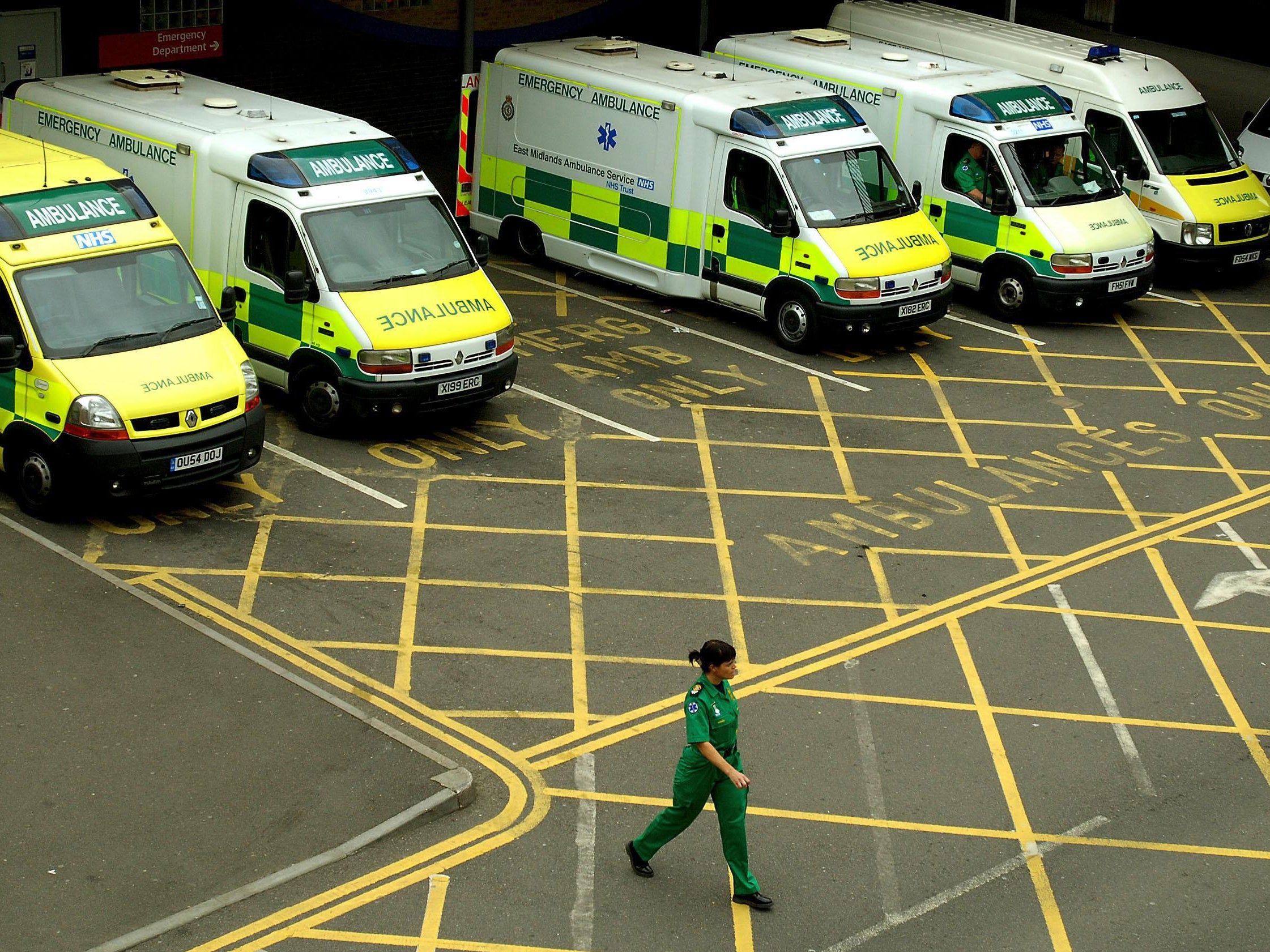Your support helps us to tell the story
From reproductive rights to climate change to Big Tech, The Independent is on the ground when the story is developing. Whether it's investigating the financials of Elon Musk's pro-Trump PAC or producing our latest documentary, 'The A Word', which shines a light on the American women fighting for reproductive rights, we know how important it is to parse out the facts from the messaging.
At such a critical moment in US history, we need reporters on the ground. Your donation allows us to keep sending journalists to speak to both sides of the story.
The Independent is trusted by Americans across the entire political spectrum. And unlike many other quality news outlets, we choose not to lock Americans out of our reporting and analysis with paywalls. We believe quality journalism should be available to everyone, paid for by those who can afford it.
Your support makes all the difference.Understaffed and underfunded NHS ambulance services are finding it increasingly difficult to cope with rising demand, the Government’s spending watchdog has said.
The National Audit Office said ambulance services were failing to hit a target of 75 per cent of ambulances on the scene within eight minutes.
An overall figure of 72.5 per cent meeting response time also masks significant variation in service quality across the country, with "national performance against response time targets … getting worse”, according to the report.
In 2015/16, just one in three ambulance trusts actually met their targets for responding to 999 calls on time.
The official warning comes weeks after the Government denied there was an NHS “humanitarian crisis” after a warning by the British Red Cross about overstretched hospitals.
The NAO’s report however says that overburdened A&Es are having a knock-on effect on ambulance services..
Amyas Morse, head of the National Audit Office, said: “Ambulance services are a vital part of the health service but much of their ability to work better greatly depends on other parts of the health system.
“Until clinical commissioning groups see ambulance services as an integral part of that system it is difficult to see how they will become sustainable and secure consistent value for money across the country.”
Wide variation in services across the country sees 99 per cent of calls reached within 23 minutes in Yorkshire, compared with 45 minutes in the South West of England.
One problem highlighted by the report was the time it took staff to hand patients over to hospitals, with 500,000 ambulance hours said by the NAO to be lost every year.
Jonathan Ashworth, Labour’s shadow health secretary, said the health service was clearly “struggling to cope with the strain of Tory underfunding”.
"The number of ambulance calls in England has increased every year since 2010, but today's National Audit Office report shows the Government has not provided the funding needed to keep pace with demand.
“Performance against response time targets is getting worse and pressures elsewhere in the system are taking their toll - a shocking half a million ambulance hours were lost to slow turnaround at A&E departments last year.

"The NAO highlight a system which is under intense, growing and unsustainable pressure. This is yet more evidence of the incompetent mismanagement of the NHS under the Conservatives.
“Quite simply, the health service is struggling to cope with the strain of Tory underfunding. Theresa May needs to get a grip of the NHS crisis and give our ambulance staff the support and resources they need to provide the best possible service to patients.”
Professor Keith Willett, NHS England's medical director for acute care, said in a statement: “The ambulance service is facing significant pressures partly because too many ambulances are dispatched to simply hit targets rather than attend to those patients most in need - with 25 per cent of dispatched blue light vehicles being stood down before they reach the scene.
“That is why we're carefully testing a change to the way in which ambulance services can respond. It's an idea that has come from doctors and paramedics, giving them much more control to do the best thing for patients.
“These trials are designed to make sure ambulances focus on the right priority - getting to the most urgent patients in the quickest possible time, and improving the service to all patients who dial 999.”

Join our commenting forum
Join thought-provoking conversations, follow other Independent readers and see their replies
Comments